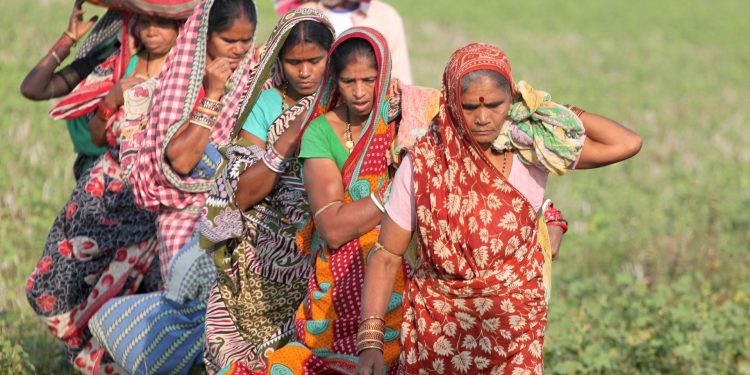Lacking a Humane Touch: On the Issue of Tribal Eviction

On the 13th of February, the Supreme Court ordered the eviction of the tribals and forest dwellers whose claims to the forest land had been rejected under the Forest Rights Act by July 2019. The Forest Rights Act (FRA) provides for the restitution of deprived forest rights across India, including both individual rights to cultivated land in forest lands and community rights over common property resources.
As the civil society clamored against the order, the government acted promptly and got the SC to stay by its order. There exist solid grounds as to why the order deserves to be overturned. Underlying all these considerations is the common theme of how the Indian state has consistently treated its tribal population in a high-handed manner.
THE ORDER
The order passed by the Supreme Court called for the implementation of the claims under the Forest Rights Act (FRA). In addition to restoring the rights of those whose claims to forest lands have been accepted, it includes evicting those whose claims have been rejected. The 2019 decision of the Supreme Court had its genesis in the 2008 petition filed by environmentalists challenging the validity of FRA. They cited concerns over the potential threat habitation in forests poses to their wellbeing. The status of the petition remains undecided. Meanwhile, another petition was filed asking for the eviction of those whose claims had been rejected. Indeed, it’s paradoxical that the SC directed the implementation of FRA claims pursuant to a petition, whose parent petition of 2008 challenges the very constitutional validity of the Forest Rights Act. Therefore, it’s truly ironic that the FRA, which was meant to provide legal ownership to dwellers, is actually being used to disempower them.
The SC’s order raised a great deal of hue and cry, for it sought to further dispossess what can undoubtedly be deemed to be the most vulnerable section of the Indian society. In response, the SC stayed by its order, directing the government to assess whether the procedure followed was fair and re-evaluate the claims. Had the order been implemented, it would have led to the eviction of roughly a million tribals.
WHY WAS THE ORDER PASSED?
While passing the order, SC took into cognizance the fact that a number of bogus claims regarding legal ownership over forest land have been filed under FRA. While a cogent ground, the attempt to filter spurious claims shouldn’t make the eligibility criteria so stringent that it leads to undue harassment and dispossession of bonafide claimants.
The order further brings to light one of the most longstanding tussles in India’s environmental history: that between wildlife conservationists and environmentalists and forest dwellers. The environmentalists view the tribals as a potential disruptor of the ecological balance, a fallacious charge indeed. They hold that tribals are encroaching on the habitat of animals, going about clearing forest land, and thereby jeopardizing the ecological balance. Environmentalists tend to act oblivious to the harmonious relation of tribals with the forests as has been espoused in their belief systems and modes of living. Such a balance has manifested itself for thousands of years, well before the category of environmentalists even came into existence.
WHY THE DECISION WAS CONTENTIOUS
FRA was originally intended to undo historical wrongs committed against the tribal community by recognizing individual and collective rights of tribals and forest dwellers over forest land. It is indeed a cruel irony that an act meant to benefit tribals is threatening their very existence and way of life.
One of the primary reasons why this decision is being contested is because of the adversarial bureaucratic process involved in the assessment of claims. Firstly, the tribals have been crippled by a lack of awareness about the document requirement and means of recourse in case of rejection of the petition. Additionally, multiple instances have been found wherein claims have been rejected on flippant grounds. To add to that, there has been apathy on part of forest officials and NGOs over this issue when they’re actually supposed to help the tribals with the filing process.
Notably, while the rate of rejection of claims of tribals remains alarmingly high, the state hasn’t shown any delay in allocating land to supposedly ‘developmental’ projects like for mining, setting plantations, etc. This was reflected in the state’s attempt to surreptitiously earmark land for mining projects through ingenious means. One such instance was the diversion of 88 hectares of land, initially earmarked tiger reserves, for the industry in Maharashtra in 2018. The initial diversion happened because the land allocated for animal reserves is supposed to be outside the ambit of FRA.
Additionally, the environmentalists have for so long fallaciously believed that tribals are the enemies. Given the aforementioned fallout of the opinion the environmentalists have held, there exists a pressing need on their part to view environmentalism and social justice in complimentary terms. Protection of forests shouldn’t come at the cost of tribal welfare. In any case, tribal mode of living has invariably promoted forest conservation. The focus should thus be on finding the synergy in their goals and uniting against the common enemies of the state and the capitalists.
Such instances of undermining the livelihood of tribals should make us ask ourselves if such blatant disregard of the claims of tribals, who never consented to be a part of the mainstream model of development, doesn’t have traces of neo-imperialism.
TRIBALS AND DEVELOPMENT
The tribals have been cut an unfair deal since colonial times. Back then, the forests were sought to be ‘protected’ from the tribals who were viewed as barbarians. Faced with utter privation, tribals took arms against the imperial state. The colonial rule thus has been viewed as a cycle of dispossession and rebellion for the tribals.
Post independence, ‘national development’ substituted ‘protection of the forests’ as the reason for the displacement and subjugation of tribals. In a damning state of affairs, tribals, who constitute 8% of the population, number up to 55% of the population displaced by development projects.
Given this bleak scenario, we really need to ask whether the tribals really want this development. The state expects the tribals to abdicate their claims in the name of national interest. At the same time, one can see an unwillingness on the part of the state to fulfill the basic human needs of tribals.
WAY FORWARD
In spite of all that’s happened, one needs to understand that the only way to deal with the tribal question in a sustainable way is by adopting an approach which takes the tribals together. The first step would be to sincerely assess procedural lapses. There is a need for a concerted attempt at recognizing the rights holders while aiding the tribals in the entire process.
Secondly, there is a need to view tribals as guardians of the forest. In sum, a social justice centric view of forest protection ought to be adopted. The communities need to be actively engaged in the protection of forests, thereby involving tribals in the conservation of forests and afforestation of wastelands in lieu of remuneration et al.
More importantly, the issue has raised deeper questions warranting contemplation. The state needs to ask itself how, at a time where the dominant model of development is centered on capitalism, can alternative models of development (such as those followed by tribals) be respected and promoted.




